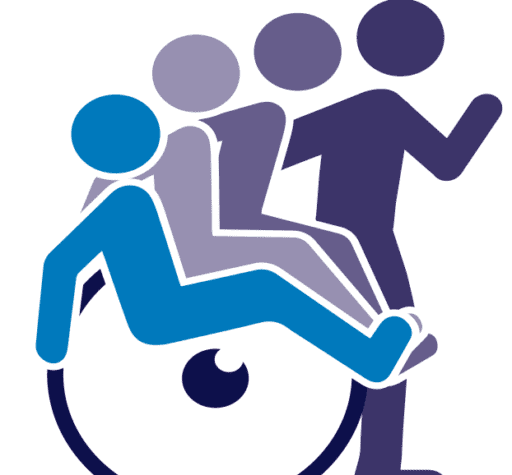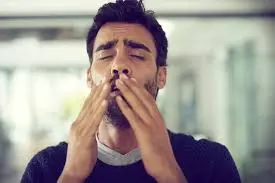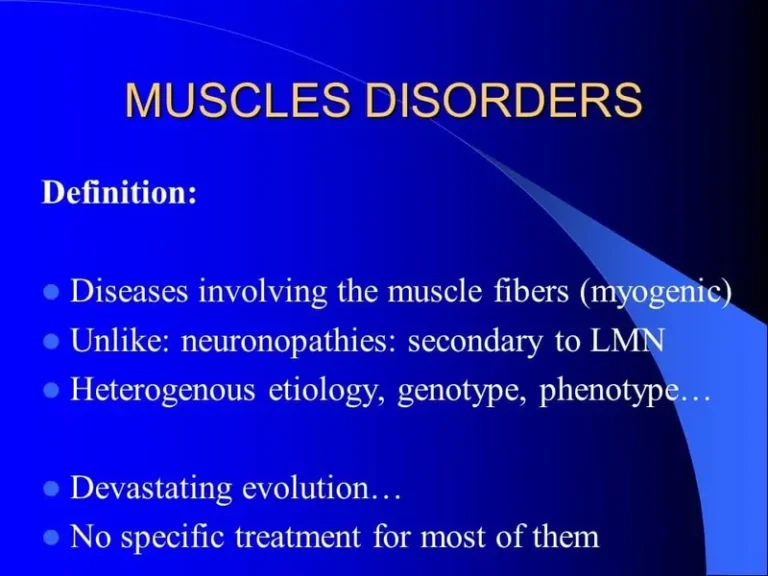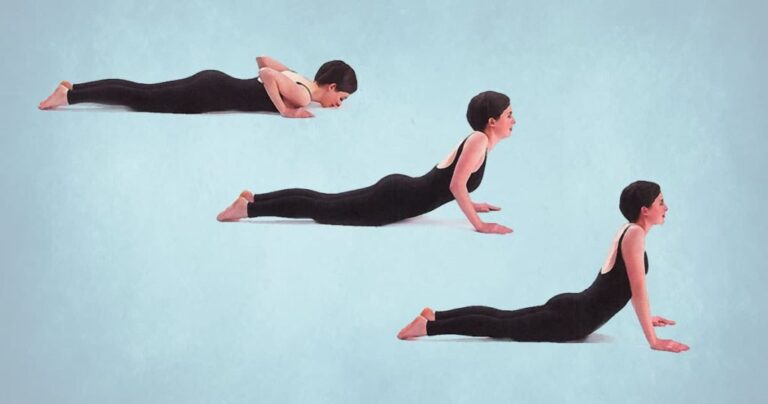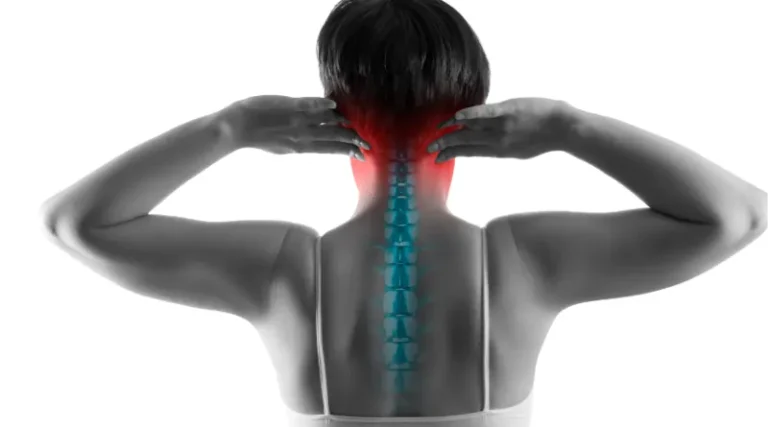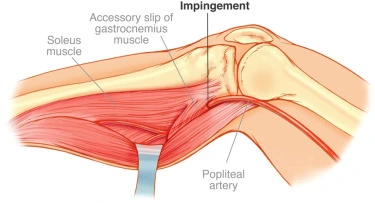Back Pain When Sneezing
Table of Contents
What is a Back Pain When Sneezing?
People may get back pain when they sneeze for a variety of reasons. Sneezes can result in an injury by themselves, or they can exacerbate an injury already present.
A herniated disc, strained muscles, sciatica, or a vertebral compression fracture (VCF) can all result in back pain from sneezing. Your pain might be lessened by using certain natural remedies.
A simple sneeze might occasionally make you immobile due to an abrupt back spasm. As you attempt to comprehend the recent events, you might be curious about the correlation between a sneeze and back discomfort.
Sometimes the pain is actually caused by the quick, unnatural movement of a large sneeze. In other situations, your sneeze may cause a painful sign of an underlying back muscle or nerve issue.
A strong sneeze can take you by surprise. While most people are not affected, some people experience excruciating lower back discomfort when they sneeze.
This article examines some of the ailments that can result from sneezing as well as how it might exacerbate pre-existing injuries. It also discusses how to sneeze properly and provides advice on how to deal with back pain.
What happens when you sneeze?
Sneezing is a strong, reflexive movement that helps you get rid of allergens from your nose, including dust, pollen, and smoke.
Violent sneezes can cause excruciating pain because of the way the body “processes” them. When you inhale at the beginning of a sneeze, the pressure in your spinal canal and abdomen increases. Your body releases all that pressure with great vigour as it completes the sneeze.
One can sneeze as fast as 100 miles per hour. You can see how sneezing can be painful when you have underlying medical conditions.
Why does sneezing cause pain in the back?
Almost every action you take that involves your upper body involves the muscles in your back. Your back muscles are used for lifting, reaching, turning, and standing.
Our backs may be accustomed to the activity, but that doesn’t mean they are immune to strain and damage. The force from a sneeze, sports injuries, and excessive work can all cause strains in your back. You’ve undoubtedly overdone the yard work or lifted something too heavy at some point, resulting in
Each person experiences back pain while sneezing differently. Some people have back pain when they sneeze because of an underlying back ailment, such as sciatic nerve damage. For others, back discomfort is brought on by the abrupt contraction of the abdominal muscles during a sneeze. These are the top four reasons why people have back discomfort when they sneeze.
Abrupt, unnatural motions, such as a forceful sneeze, can also bring on back pain that lasts for a few seconds or more. Furthermore, not just the muscles in your back are in danger. Your diaphragm and the muscles between your ribs tighten when you sneeze to aid in expelling air from your lungs.
Sneezing violently might cause strain on your chest muscles. Additionally, if your back muscles aren’t prepared for a quick sneeze, the uncontrollably tense muscles, and uncomfortable sneeze movement can result in a spasm, which is an involuntary contraction of one or more muscles that is frequently painful.
Causes of back pain:
Herniated disk:
A person’s spine, often known as their backbone, is made up of 24 bones, or vertebrae. According to the American Academy of Orthopaedic Surgeons, these bones support proper posture, allow for bending and twisting, and shield spinal cord nerves.
Tough, spongy discs are found between your vertebrae, the stack of bones that make up your spine, and around your spinal cord. A spinal disc has a soft interior and a hard outside.
A herniated or ruptured disc happens when the jelly-like, soft substance inside the disc pushes against the spinal cord or adjacent nerves through a hole in the outer layer.
The jelly-like disks called intervertebral disks cushion the spine during movement by separating the vertebrae and serving as shock absorbers.
A damaged disk may protrude out of position and press against the spinal nerves. This is what medical professionals refer to as a herniated, or “slipped,” disk.
According to the American Association of Neurological Surgeons (AANS), a herniated disk can result from even a mild strain or twisting action, particularly as people age and their bones and ligaments weaken.
When sneezing, people with pre-existing herniated disks may feel even more difficulty if the disk presses against the spinal cord.
Sneezing is an explosive force, and in healthy individuals, any abrupt, twisting motions may result in a disk bulging or herniating.
According to Dr. Mullner, a bulging or herniated disc may not cause any symptoms at all. This is especially true if the herniation is minor. Coughing, however, has the potential to compress the disc, pushing it outward and into contact with the spinal nerves, which can result in lower back and even leg pain. Here are some additional signs of a herniated disc:
- Tingling or burning, particularly on one side
- Numbness
- discomfort that gets worse whether sitting, standing, or walking
- Pain that is electric shock-like and sharp
- A woman suffering from a headache
For a herniated disc, rest is not advised as a therapy approach, in contrast to a muscle strain. Alternatively, a little exercise for a few days to several weeks is advised by the American Association of Neurological Surgeons, which can reduce inflammation in the spinal nerve. In cases where pain is minimal to moderate, over-the-counter medications are also employed. According to the association, an epidural steroid injection may be suggested to reduce inflammation and ease discomfort if the pain is more severe.
Not all herniated discs hurt, and they are treatable. Even if you have a herniated disc, you might not experience any discomfort during the day. However, a cough, sneeze, or other activity could force the inner disc material closer to a nerve, resulting in an abrupt exacerbation of discomfort.
Muscle strain:
Muscle strain is defined by the AANS as when muscle fibres rupture or overstretch. They are susceptible to stress. Because the muscles of the lower back support the weight of the upper body and enable bending, twisting, and movement. It is typically brought on by lifting, twisting, or overstretching your muscles when doing exercise.
According to the AANS, muscular strains can develop gradually or result from an abrupt injury.
A person’s back and abdominal muscles are compressed when they sneeze, and a particularly strong sneeze may be enough to tear the fibres.
Sneezing can exacerbate a muscular strain, making it more painful for anyone who already has one.
Sneezing can also strain your back muscles, resulting in a painful spasm. Sneezing with too much force might occasionally strain your muscles.
Vertebral compression fracture:
When a portion of your vertebra collapses, it might result in a vertebral compression fracture (VCF). As per the American Association of Neurological Surgeons, this is the most typical fracture among those suffering from the bone-thinning disorder known as osteoporosis.
A VCF can result from even a short flight of steps or a sneeze for those who have severe osteoporosis. This kind of vertebral fracture typically requires a fall or other trauma in individuals with mild to moderate osteoporosis.
Because their bones are less dense than others, those who have osteoporosis run the risk of suffering a vertebral compression fracture when they sneeze. As they age, their bones weaken and grow thinner.
Excessive pressure on a person’s weaker spine might result in vertebral compression fractures. The vertebra loses height when the front of it fractures and collapses.
Sciatica:
The longest and widest nerve in your body is the sciatic nerve. It originates in your lower back and travels down your pelvis before splitting off and continuing down each leg.
Sciatica is the term for damage to the sciatic nerve. In addition to back discomfort, it frequently causes leg pain. This strong but delicate nerve can be compressed by a quick sneeze, which can result in shooting pains and numbness down one or both legs.
Whenever a sneeze triggers symptoms of sciatica If it gets worse, it can indicate that you have a major disc herniation that needs to be treated.
A person may feel a burning feeling in the buttocks or painful tingling in their legs if the nerve becomes irritated or if something is squeezing against it. This is defined as sciatica.
Sneezing can hurt a lot of people with sciatica, either in their legs, buttocks, or lower back. Although the pain is usually transient, it may indicate a herniated disk if it persists.
Arthritis
Although there are several kinds of arthritis, osteoarthritis is the most prevalent one. One of the joints most impacted by the illness is the spine. When bones rub against one another, cartilage deteriorates and causes discomfort and unusual feelings.
Osteoarthritis reduces the amount of cushioning in your vertebrae, which prevents shock absorption when you sneeze. It can cause terrible pain.
Spinal stenosis:
Lumbar spinal stenosis is the term for the narrowing of the spinal canal, which is formed by your vertebrae and houses your spinal cord, a bundle of nerves. This puts pressure on the nerves, which might flare up with pressure-related pain, like coughing. Among the symptoms are:
- Burning ache that travels down the legs and into the buttocks
- Sensation loss in the feet
- Reduction in sexual capacity
- Leg weakness, cramps, tingling, or numbness
- Foot weakness that results in the foot slapping down when walking is also termed a footdrop
People who have spinal stenosis may experience pain while coughing or when their back suddenly moves. Additionally, you can be experiencing throbbing or dull upper back pain.
The degree of your stenosis will determine how you are treated, he continues. Your doctor will probably start by recommending medicine and physical therapy, but if your condition is getting worse, surgery might be necessary.
Treatment:
What should you do when you sneeze to protect your back?
Standing up straight instead of sitting still is one strategy to preserve your back if you have back pain and feel like you’re about to sneeze. Standing relieves some of the pressure on the spinal discs.
A study suggests that when you sneeze, you can get even more benefits if you stand, lean forward, and put your hands on a table, counter, or other sturdy surface. This may relieve some of the strain on your back and vertebrae.
Putting a cushion on your lower back and leaning against a wall could be beneficial.
Home remedies for back pain:
If you suffer from back pain, you understand how crucial it is to get better. These are a few popular and efficient at-home treatments for back pain:
- Ice: If you have a strained muscle, applying an ice pack to the affected area—wrapped in a cloth to prevent skin damage—will help to reduce swelling. This can be done for 20 minutes at a time, several times a day.
- Heat: Consider applying a heat pack to your back for 20 minutes at a time after a few days of ice treatments. The blood flow to your tense muscles may be improved by doing this.
- OTC (over-the-counter) painkillers. Anti-inflammatory and anti-muscle pain medications include ibuprofen (Advil, Motrin) and naproxen (Aleve).
extending. - Stretching: Simple side bends and overhead reaches are examples of mild stretching that can help reduce discomfort and tension in the muscles. When you experience sudden, intense pain, stop immediately and don’t stretch past the point at which you can feel your muscles stretching. Consult a physical therapist or professional personal trainer if you’re not sure how to perform safe stretches.
- Mild exercise: Even though you might believe that you need to relax, prolonged periods of inactivity can exacerbate your back discomfort. According to a study, a little exercise, such as walking, swimming, or just going about your regular business, can improve blood flow to injured muscles and hasten their healing.
- Proper posture: Maintaining proper posture when sitting and standing can assist in ensuring that you don’t have to put any extra pressure or strain on the back. Maintain a backward posture and avoid a forward-rounded shoulder, whether standing or sitting. Make sure your back and neck are straight when you sit in front of a computer and that the screen is at eye level.
- Control of stress: Back discomfort is one of the several physical consequences that stress may have on your body. Practices like yoga, meditation, and deep breathing can help relax the tension in your back muscles and lower your level of mental stress.
Physical therapy:
Lowering strenuous activities is a fantastic option if you’ve pulled your back while sneezing. Still, you should go about your everyday business, and taking a leisurely swim or stroll can be beneficial. If you lie down for an extended period, you may become more sore and stiff.
Anti-inflammatory medications can help you manage the pain, and a little stretching may also be beneficial. The following could be beneficial for managing discomfort as well:
Using TENS, cold, or heat therapy: These treatments work wonders for relieving muscle soreness. Sooth your back if you’ve pulled it with a painful sneeze; try one of these remedies.
Cold therapy
- Reduces swelling and pain signals by tightening the muscles and constricting blood vessels.
- As needed, apply for 15 to 20 minutes.
- Steer clear if you have muscle knots or spasms because the cold might make the pain worse.
Heat therapy
- Opens up blood vessels and relieves aches, knots, and cramps.
- Three times daily, for a maximum of twenty minutes.
- Steer clear of it within the first 72 hours after an injury, since heat can exacerbate swelling.
TENS treatment
A low-voltage electrical current is used in transcutaneous electrical nerve stimulation, or TENS, to relax the muscles and relieve back discomfort.
- Relieves pain temporarily.
- There isn’t much scientific proof, but for certain people, it works.
- See your physician before using.
Back brace:
Back braces ease the strain on your spine, encourage proper posture, and provide additional support. If you frequently have back pain from sneezing, are older, have osteoporosis, or have a history of back injuries, getting extra protection from strong sneezes can be a smart decision.
To help you avoid becoming dependent on a brace, your doctor may recommend a brace regimen in addition to a program to strengthen your core. They’re an excellent tool for avoiding re-injury, but to prevent muscle atrophy, you should only use them as directed by a therapist.
When to visit a physician:
See your doctor again if an unexpected episode of back pain worsens or doesn’t go better with self-care in a few weeks.
If you experience back discomfort, it’s critical to get medical attention right away and:
- Lack of feeling in your legs, groin, hips, or low back
- Loss of control over one’s bowels or bladder
- A history of cancer
- Pain extending from your back, down your leg, and below your knee, as well as any other unexpected or unexpected symptoms, such as an elevated fever or stomach ache
Undiagnosed back conditions may manifest as abrupt back pain or spasms that stay longer when you sneeze.
Make sure to follow up with your doctor to determine the cause of the issue if the pain continues or if you find it difficult to carry out your everyday tasks. The next time you experience a tickle in your nose, knowing what caused your back pain can assist in reducing or avoiding future instances.
Summary
It hurts when she sneezes and causes back aches. If you suffer from a back ailment, you are undoubtedly accustomed to this sensation. Sneezing or coughing—or any abrupt action that tenses the abdominal muscles—can easily set off back discomfort.
An occasional strong sneeze can result in disc herniation, spinal compression fractures, and strains on the muscles.
You can lessen the pain in your back when you sneeze by either standing up or resting your hands on a table. Always get your back examined by a physician if you feel pain when you sneeze or at any other time.
FAQs
This is because when you sneeze, your chest’s muscles and bones move. Chest pain during sneezing is frequently caused by straining muscles. More serious issues like a tumor and persistent ailments like heartburn are examples of additional causes. Your chest may hurt all over or just in one place when you sneeze.
Sneezing can cause back pain overall, upper and lower back spasms, slipped or ruptured discs, and other spine ailments if it’s done in a way that jerks your body. In severe cases, paralysis of the limbs could result from a sneeze.
Most back muscle strains heal in three to four weeks, although many heal in as little as a few days. Most people who suffer from mild to severe lumbar strains recover completely and are symptom-free in a matter of days, weeks, or even months.
This symptom may be the result of a herniated disk or something as simple as a muscular strain. If you’re in excruciating pain following a strong sneeze, there are things you can do at home to reduce the discomfort. Heat or cold therapy, anti-inflammatory medications, and mild exercise are all great strategies to start feeling better.
If coughing causes pain in your back, there’s probably a problem that needs to be fixed. Coughing might cause your body to assume an awkward position that can exacerbate your back pain. Consult your physician to determine the cause of your back pain. See a physician if you have a persistent cough as well.
